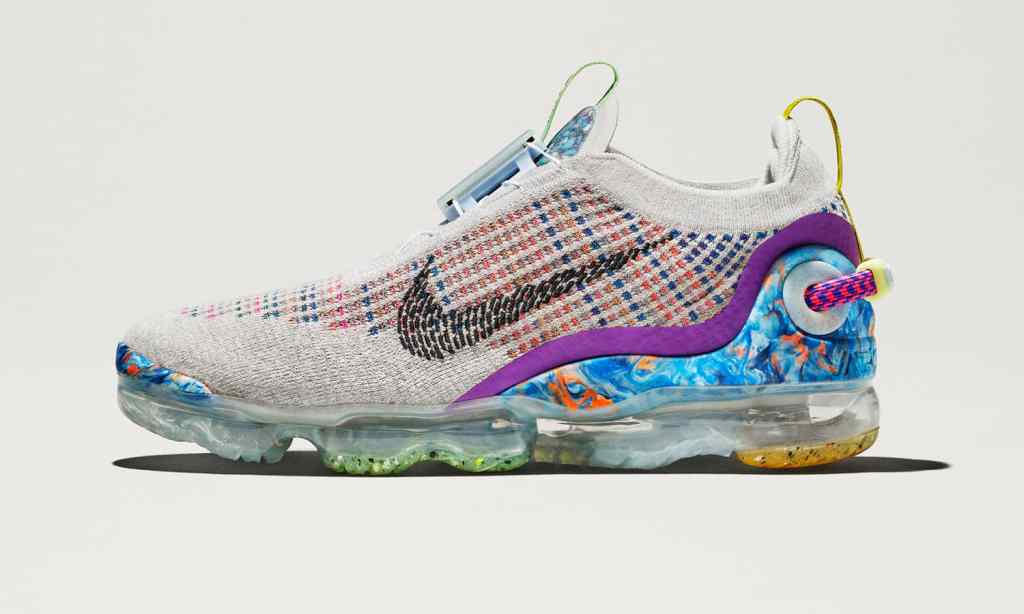Nike has announced its latest sustainable sneaker as the Air VaporMax 2020 Flyknit, which it says “raises the bar in balancing sustainability and innovation for everyday wear”.
One of the sportswear giant’s most sustainable shoes to date, the on-trend silhouette is made with at least 50% recycled content by weight.
The shoe release is in line with Nike’s Move to Zero journey, which sets the label up for a zero-carbon and zero-waste future with the hopes it will help protect the future of sport against climate change.
“We wanted to look at not only Nike’s waste stream but other industrial waste streams and how we could leverage that content. We let that drive a lot of the decision-making,” says Nike product design lead, Jesi Small.
Each component, from the recycled Flyknit yarn (made from around 67% post-industrial recycled content including recycled plastic bottle waste) to the tongue, which features at least 80% recycled foam, was carefully considered for comfortable wear and everyday functionality, that’s as easy to slip on as it is to slip off.
“We wanted to make a sustainably-sourced silhouette from the ground up, and one that is quick and easy to put on and wear daily,” says Small. “That’s why we also innovated around ease of entry, exit and lockdown to design a smarter and better-designed shoe for all athletes.”
In using recycled materials, Nike ensured a uniqueness in the finished product of each shoe. Raw elements bring varying colour patterns and guarantee now two shoes look the same upon wear.
“One of the cornerstones of what we were trying to do with this shoe was integrate the idea of ‘Rawthenticity,’ or showing how the raw pieces of each of these sustainable design elements was coming to life,” says Jarrod Hale, Nike’s senior project line manager.
In many ways, we’re reminded of the recently launched Nike Space Hippie range, which like the Air VaporMax 2020 Flyknit, were also made from trash.
In Australia, the Nike Air VaporMax 2020 Flyknit will set you back $290 from nike.com. While an exact release date and definitive colourways are yet to be announced, the shoe will be available in Australia this season.
Nikes’ Move to Zero journey includes a number of initiatives to reduce waste and thus protect the future of sports.
In addition to producing new product ranges that celebrate recycled materials, Nike will also power its facilities with 100% renewable energy by 2025, reduce its carbon emissions globally by 30% by 2030, and recycle 1 billion plastic bottles annually to create jerseys and uppers for Flyknit shoes.
Read more stories from TheLatch— and follow us on Facebook.

